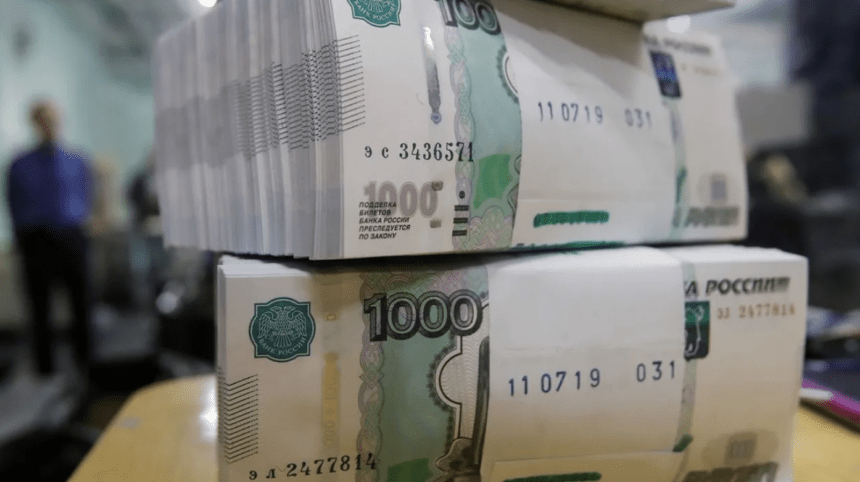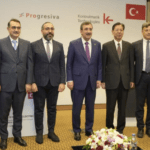The problems in money transfers from Russia are deepening day by day. Export accounts cannot be closed due to the fact that banks in Turkey have been rejecting payments from Russia since January. Companies are demanding an exception to bring the entire amount of exports to the country.
Turkey’s money transfer problems in its trade with Russia, its seventh largest export market, are increasing. Exporters, who have not been able to receive their export payments from Russia through bank channels since January, have started to lose new orders to China and alternative countries while having difficulty in closing their export accounts.
In the face of the obligation to bring the export price to the country within 180 days, companies that cannot receive the payment from the bank are trying to collect these costs with their own formulas. However, the obligation of bank transfer to close the export account prevents the export account from being closed.
For this reason, it was learned that some companies were trying to receive the export payments through transfers made through third country banks, not Russian banks, while some companies were trying to solve the problem through cargo and some companies were trying to solve the problem through the Grand Bazaar.
Business sources speaking to EKONOMİ say that money transfers have been cut like a knife and exports have come to a standstill, while demanding that ‘an exception be applied to bring the entire value of exports from Russia to the country’ in order to make it possible to close exports.
33 countries on the exception list
In trade with countries covered by the exemption, there is no obligation to bring the money by bank transfer and declare it. There are currently 33 countries that are exempted under the legislation. With a regulation made by the Ministry of Treasury and Finance in February, the number of exempted countries was increased from 31 to 33, and the Democratic Republic of Congo, South Sudan, Mali and the Republic of Congo were newly added to the list, while Egypt and Saudi Arabia were removed from the list. According to the legislation, the exempted countries are as follows: Afghanistan, Angola, Belarus, Benin, Djibouti, Democratic Republic of Congo, Ethiopia, Ivory Coast, Palestine, Gabon, Ghana, Guinea, South Sudan, Iran, Cameroon, Kenya, Kyrgyzstan, Republic of Congo, North Korea, Cuba, Liberia, Lebanon, Mali, Moldova, Nigeria, Senegal, Somalia, Sudan, Syria, Tajikistan, Tanzania, Venezuela and Yemen.
Turkish banks’ refusal to accept money transfers from Russia, fearing Western sanctions, has dealt a blow to exports to the country. According to data from the Turkish Exporters Assembly (TIM), exports to Russia in January fell 30.4 percent compared to the same month last year, from USD 792.1 million to USD 551.1 million. According to TurkStat data, which takes into account the difference between free zones and warehouses, the decline in January reached 39 percent, and exports fell from USD 1.04 billion to USD 631 million. According to data from the Ministry of Trade, the decline in imports from Russia in January also reached 20 percent, declined to USD 3.9 billion. According to TIM data, exports to this country decreased in 23 of 25 sectors. While the loss in chemistry, the sector that exports the most to Russia, reached 41.4 percent, there was a 20.4 percent decrease in fresh vegetables and fruits, which ranked second; 7.6 percent in automotive, which ranked third; 23.9 percent in machinery, which ranked fourth; and 48.4 percent in electrical and electronics, which ranked fifth.
It was noteworthy that the payment problems with Russia started after US Secretary of State Antony Blinken’s visit to Turkey on January 5. One of the topics on the agenda during Blinken’s visit was the Russia-Ukraine war. While the problem in money transfers was first reported by the EKONOMİ newspaper, many sector representatives from automotive to textiles stated that they were experiencing difficulties and even some export orders started to run away due to the uncertainty in the solution of the problem. In response to the increasing number of complaints, the Ministry of Trade took action and compiled a list of companies that could not receive payments. Then, with the exception brought to the ready-to-wear, textile, footwear and food sectors through a public participation bank oriented towards the private sector, export payments started to be received. While Russian officials stepped in upon the increasing problems, Russian Ambassador to Turkey Alexey Yerhov first stated that they were in intensive contact with the Turkish authorities for the solution of the problem.
On the other hand, the Reuters agency reported the previous day that Russian oil exporters have also been unable to receive payments from Turkey for the past few weeks. Russian and Western media have also reported that some Chinese and United Arab Emirates banks are also refusing money transfers from Russia, but trade with China, Russia’s largest supplier, continues to increase.
Italians develop system to solve money transfer problem
While the West pressures Turkey with threats of sanctions, Italians are testing new payment systems to improve trade with Russia. The Ria News Agency reported that the Italian-Russian Chamber of Commerce has begun pilot testing a system that allows purchases to be made in Italy in rubles. According to the Chamber’s president, Ferdinando Pelazzo, the chamber will receive rubles from Russian companies and then transfer the equivalent to Italy from its own account in a third country. Allegedly, an agreement has been reached with an Armenian bank.










